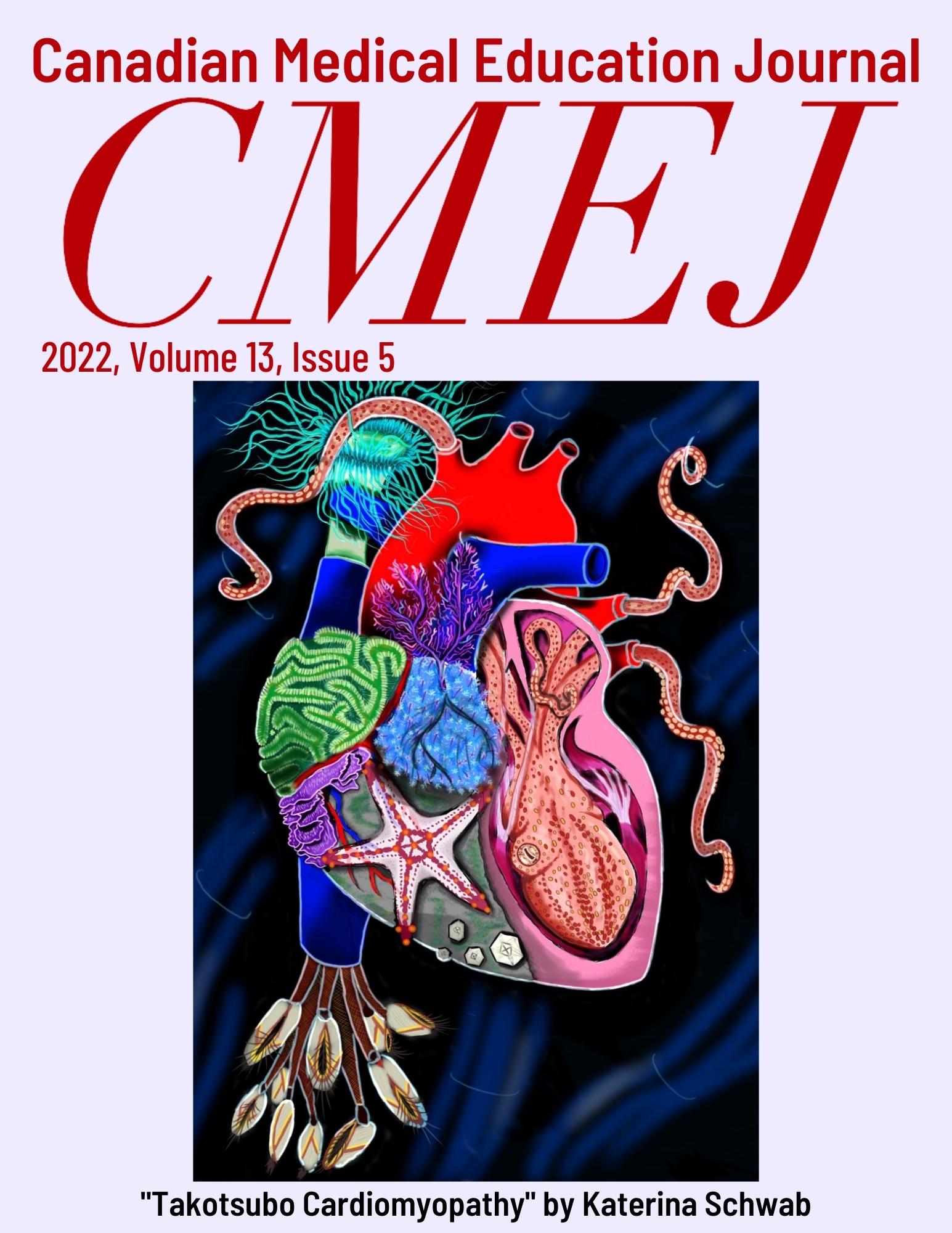“R1 Nightmares”: a resident-led on-call medical emergency simulation course for junior residents
DOI:
https://doi.org/10.36834/cmej.73858Abstract
Implication Statement
On-call medical emergencies can be a source of anxiety for junior medical residents. Senior resident teachers are well-positioned to teach a safe approach to managing on-call emergencies, and simulation-based training has educational and patient safety advantages. We describe the implementation of a resident-facilitated, on-call emergency simulation course for first-year residents. The course was low-cost, time-efficient, increased residents’ self-rated comfort with acutely deteriorating patients and was highly recommended by participants. The “R1 Nightmares” course could be adapted for other residency programs and institutions.
References
Brennan N, Corrigan O, Allard J, et al. The transition from medical student to junior doctor: today's experiences of Tomorrow's Doctors. Med Ed. 2010 May 44(5):449-58. https://doi.org/10.1111/j.1365-2923.2009.03604.x
Kolb, D. Experiential learning: experience as the source of learning and development. 2nd ed. Upper Saddle River, NJ: Pearson Education; 2014.
McMurray L, Koch Hall A, Rich J, et al. The nightmares course: a longitudinal, multidisciplinary, simulation-based curriculum to train and assess resident competence in resuscitation. J Grad Med Educ. 2017 Aug 9(4):503-508. https://doi.org/10.4300/JGME-D-16-00462.1
Brierley C, Ellis L, Roisin Reid E. Peer-assisted learning in medical education: a systematic review and meta-analysis. Med Educ. 2021 Sep 1- 9. https://doi.org/10.1111/medu.14672
Ten Cate O, Durning S. Dimensions and psychology of peer teaching in medical education. Med Teach. 2007 29(6):546-552. https://doi.org/10.1080/01421590701583816
Adams T, Newton C, Patel H, et al. Resident versus faculty member simulation debriefing. Clin Teach. 2018; 15(6):462–466. https://doi.org/10.1111/tct.1273
Downloads
Published
Issue
Section
License
Copyright (c) 2022 Erica D McKenzie, Jordan Sugarman, Tyson Savage, Matthew Lee, Hayley Thornton, Timothy Chaplin, Ghazwan Altabbaa

This work is licensed under a Creative Commons Attribution-NonCommercial-NoDerivatives 4.0 International License.
Submission of an original manuscript to the Canadian Medical Education Journal will be taken to mean that it represents original work not previously published, that it is not being considered elsewhere for publication. If accepted for publication, it will be published online and it will not be published elsewhere in the same form, for commercial purposes, in any language, without the consent of the publisher.
Authors who publish in the Canadian Medical Education Journal agree to release their articles under the Creative Commons Attribution-Noncommercial-No Derivative Works 4.0 Canada Licence. This licence allows anyone to copy and distribute the article for non-commercial purposes provided that appropriate attribution is given. For details of the rights an author grants users of their work, please see the licence summary and the full licence.











